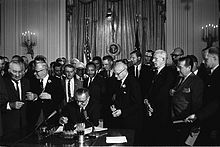“Punting the Pundits” is an Open Thread. It is a selection of editorials and opinions from around the news medium and the internet blogs. The intent is to provide a forum for your reactions and opinions, not just to the opinions presented, but to what ever you find important.
Thanks to ek hornbeck, click on the link and you can access all the past “Punting the Pundits”.
Follow us on Twitter @StarsHollowGzt
Trevor Timm: The surveillance state can’t even keep track of how many people it’s spying on anymore. Time to close the loopholes
A government authorized to search innocent people. Multiple agencies seeking a backdoor into your data. It’s all coming to a head – and internal reports aren’t going to cut it
The blowback against the National Security Agency has long focused on the unpopular Patriot Act surveillance program that allows the NSA to vacuum up billions of US phone records each year. But after a rush of attention this week, some much deserved focus is back on the surveillance state’s other seemingly limitless program: the warrantless searches made possible by Section 702 of the Fisa Amendments Act, which allows the NSA to do all sorts of spying on Americans and people around the world – all for reasons that, in most cases, have nothing to do with terrorism.
The long awaited draft report from the independent Privacy and Civil Liberties Board (PCLOB) on this subject was finally released Tuesday night, and it gives Americans a fairly detailed look unclassified at how the NSA spies through its notorious Prism program – and how it snoops “upstream” (a euphemism for the agency’s direct access to entire internet streams at telecoms like AT&T). The board issued a scathing report on the Patriot Act surveillance months ago, but oddly they went the opposite route this time around.
David Cay Johnston: ‘Obama and Holder are not our friends’
Lowell Bergman argues that journalism is under attack from government and corporate power. He’s right
At the largest-ever gathering of investigative journalists – more than 1,600 watchdogs from America and 40 other countries, in San Francisco last week – one of the best, Lowell Bergman, gave a speech Saturday that everyone in America should know about. [..]
“I’m here today to tell you that we’ve been living under an illusion,” Bergman’s keynote began.
“We thought that after the Bush-Ashcroft-Gonzales years that Barack Obama and Eric Holder were our friends,” Bergman said. “They are not. While the president has said he supports whistleblowers for their ‘courage and patriotism,’ his Justice Department is prosecuting more of them for allegedly talking to the press or ‘leaking’ than all the other presidents in the history of the United States.”
Such strong-arm tactics to control information are being cheered on, Bergman said, by executives and directors of many multinational corporations who have plenty to hide about commercial bribery, deadly practices and products as well as the ruthless exploitation of workers at home and abroad.
All the single ladies now make up a quarter of potential voters. If this is the new ‘war on women’ in the age of Hobby Lobby and Hillary, we’ll be the best thing conservatives never had
Female voters in the US have been called “soccer moms” and “security moms”. In 2004, single women were “Sex and the City voters”. Now – because apparently women can’t ever just be “citizens” or “voters”, or more likely because conservatives prefer to call us names instead of delving too deep into women’s issues – we are “Beyoncé voters”. Bow down, bitches.
Most single ladies would generally be thrilled with a comparison to Queen Bey in any way, shape or form, but the cutesy nicknames for politically-engaged women need to stop. Surely pundits and the political media culture can deal with the collective electoral power of the majority voting bloc in this country in some better way than symbolically calling us “sweetheart”, complete with head pat.
Diane Ravitch: Do Teachers’ Unions Have Any Friends in the Obama Administration?
In the past, Democratic administrations and Democratic members of Congress could be counted on to support public education and to fight privatization. In the past, Democrats supported unions, which they saw as a dependable and significant part of their base.
This is no longer the case. Congress is about to pass legislation to expand funding of charter schools, despite the fact that they get no better results than public schools and despite the scandalous misuse of public funds by charter operators in many states.
The Obama administration strongly supports privatization via charters; one condition of Race to the Top was that states had to increase the number of charters. The administration is no friend of teachers or of teacher unions. Secretary Duncan applauded the lamentable Vergara decision, as he has applauded privatization and evaluating teachers by the test scores of their students. There are never too many tests for this administration. Although the president recently talked about the importance of unions, he has done nothing to support them when they are under attack. Former members of his administration are leading the war against teachers and their unions.
Richard (RJ) Eskow: 10 Mind-Bending Questions About the ‘Hobby Lobby’ Decision
Judge Ginsburg certainly got it right when she said that the Supreme Court’s Hobby Lobby decision is going to create “havoc.” And as the repercussions mount, so do the questions, in areas that range from economics and taxation to theology and philosophy.
There are those who might say that these questions are disrespectful to believers. But it is the Court which has arguably transgressed here, by declaring that a bloodless corporation is capable of belief. It has suggested that an economic and legal entity is capable of sharing in the profound and uniquely human phenomenon that is the spiritual experience. That notion could be described as disrespectful toward humanity.
Some might even call it blasphemy.
Robert Reich: Freedom, Power, and the Conservative Mind
On Monday the Supreme Court struck down a key part of the Affordable Care Act, ruling that privately-owned corporations don’t have to offer their employees contraceptive coverage that conflicts with the corporate owners’ religious beliefs.
The owners of Hobby Lobby, the plaintiffs in the case, were always free to practice their religion. The Court bestowed religious freedom on their corporation as well — a leap of logic as absurd as giving corporations freedom of speech. Corporations aren’t people.
The deeper problem is the Court’s obliviousness to the growing imbalance of economic power between corporations and real people. By giving companies the right to not offer employees contraceptive services otherwise mandated by law, the Court ignored the rights of employees to receive those services. [..]
The same imbalance of power rendered the Court’s decision in “Citizens United,” granting corporations freedom of speech, so perverse. In reality, corporate free speech drowns out the free speech of ordinary people who can’t flood the halls of Congress with campaign contributions.
Freedom is the one value conservatives place above all others, yet time and again their ideal of freedom ignores the growing imbalance of power in our society that’s eroding the freedoms of most people.




 On this day in 1986, the
On this day in 1986, the 

Recent Comments